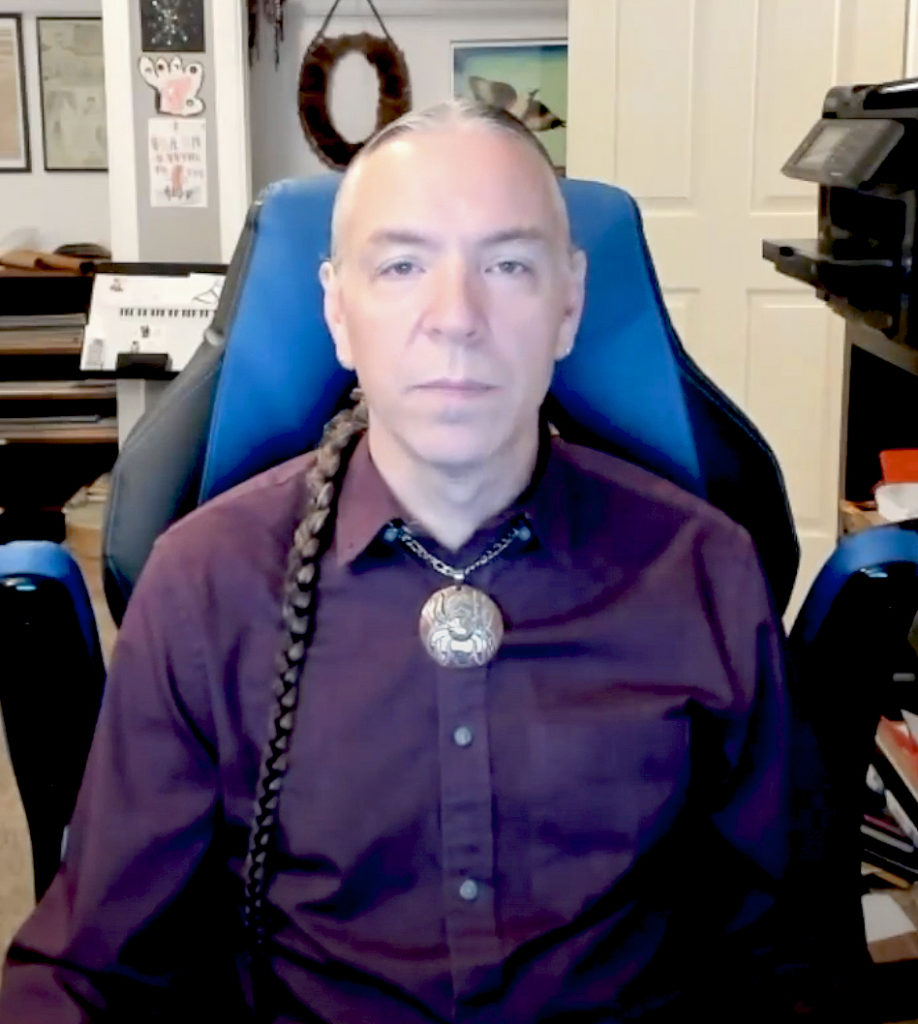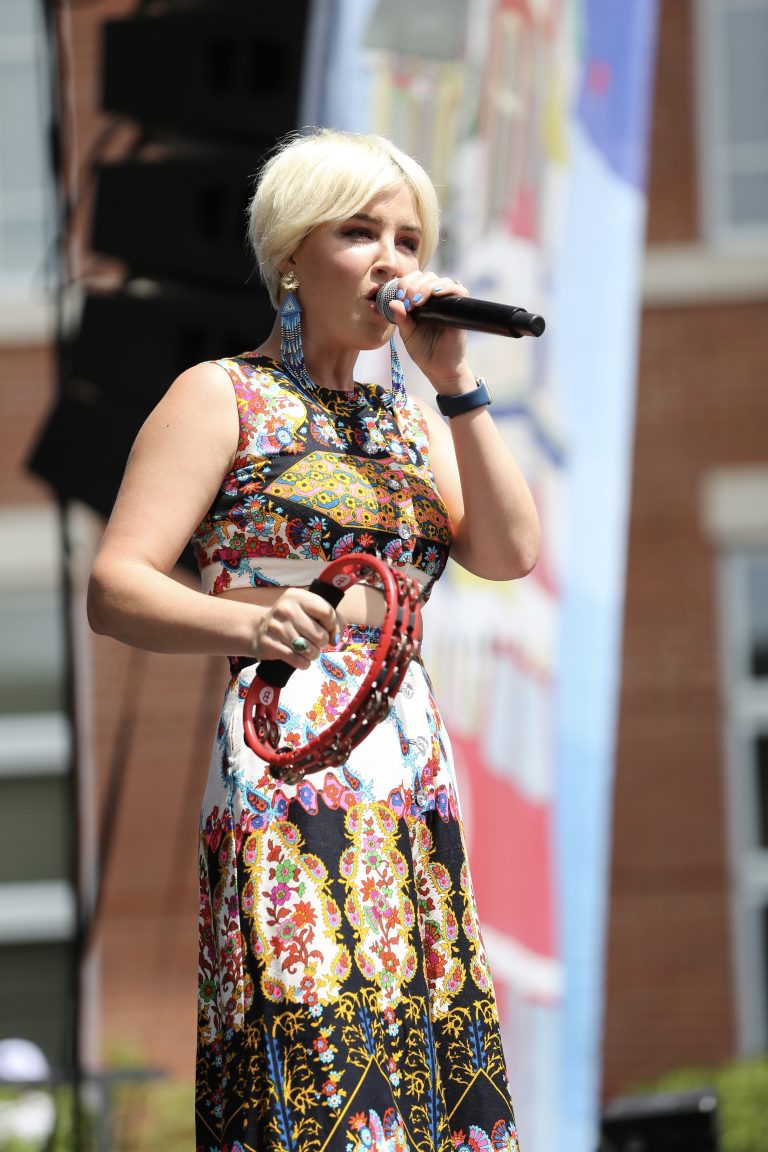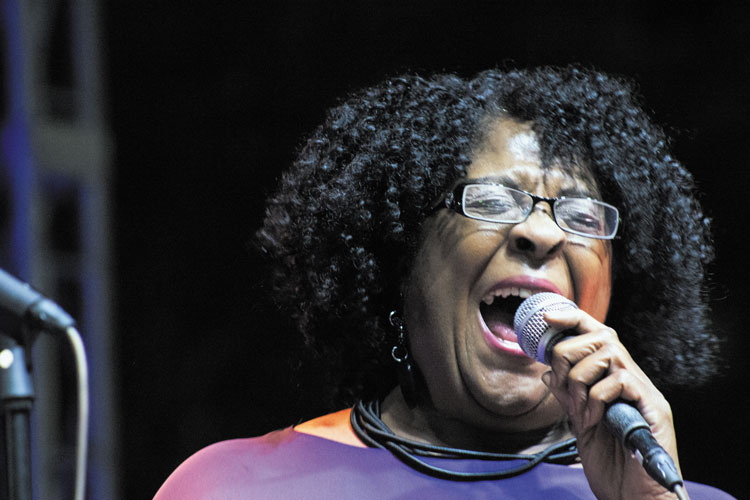
Members of the LOU Symphony Orchestra wear masks and distance during an Oct. 26 performance at the Gertrude C. Ford Center for the Performing Arts. The audience was limited to families and friends of the performers, but the performance will be streamed for everyone to enjoy beginning Dec. 1. Submitted photo
LOU Symphony celebrates Chickasaw composer in concert available to all via YouTube
The LOU Symphony Orchestra performed October 26 in the Gertrude C. Ford Center for the Performing Arts to a small audience of families and friends of the performers. The audience may have been limited, but the program offered beautiful, expansive music.
The concert was recorded, and the University of Mississippi Department of Music is making it available for everyone via the department’s YouTube channel. The link will premiere at 7:30 pm Tuesday, December 1 at https://music.olemiss.edu/.
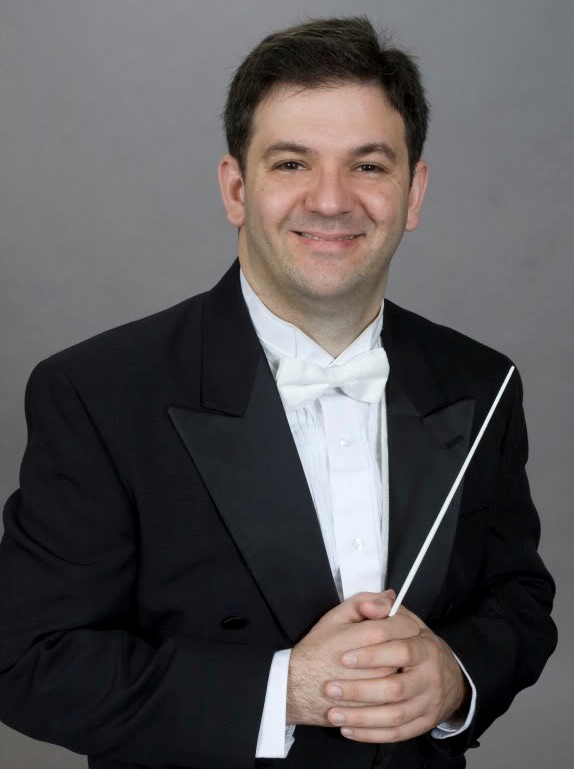
Featured work
The concert features two pieces by celebrated classical composer Jerod Impichchaachaaha’ Tate, a classical pianist and member of the Chickasaw Nation. Tate says his work seeks to “abstract traditional materials” such as American Indian songs, rhythms and melodies “into contemporary expression.”
The symphony performed Tate’s “Chokfi’,” which is the Chickasaw word for “rabbit” and the name of a trickster character common to many American Indian traditions in the Southeast. The shifting musical tone in the piece provides insight into Chokfi’s unpredictable, multifaceted character.
The Graduate String Quartet performed Tate’s chamber composition, “Pisachi,” which references tribal dances from Southwestern American Indian traditions. Tate’s mother was a professor of dance and a professional choreographer, so he grew up with a sophisticated understanding of American Indian dance traditions.
His father, who works as a judge, trained as a pianist and vocalist and has maintained a performance career throughout his life. It was his father’s playing that made Tate decide to pursue piano.

Special guests
The concert recording also contains two specially recorded videos from Tate himself. In the recordings, Tate introduces himself and the two works on the program. And in a response to the pandemic, Tate generously allowed the Department of Music to perform his work for free.
“We are truly fortunate that Mr. Tate has allowed us to perform his compositions that take the listener from energetic, to touching to poignant, in short, noble human sentiments,” said Selim Giray, LOU Symphony Orchestra director.
The performance of “Chokfi'” also included some other guest performers: talented high school musicians from Tupelo and Oxford. Giray said he was pleased that safety protocols – both players and audience members wore masks and distanced – allowed the symphony to invite some younger students to join orchestra personnel on stage.
Side-by-side performances are important for the development of young musicians, he said.
Tate recommended “Chokfi'” for the side-by-side performance with high school students because the piece was originally commissioned for a youth orchestra. “I was thinking it would be a good energy for them,” he said.
Both Giray and Tate applaud the move to make the concert available online.
“I love it!” said Tate, reflecting on being a part of the concert remotely. “It’s the Gene Roddenberry dream!”
The sight of all the performers wearing masks did not bother the composer one bit.
“It doesn’t alarm me to see masks any more than seeing different hair styles,” he said. “’90s hairstyles were far more cringe-worthy than our current masks!”
Tate said he looks forward to more collaborations with Giray and the Ole Miss music department in the future.
“I’m very excited and happy to collaborate with maestro Giray,” Tate said. “Mississippi is the homeland of Chickasaws and, for me, it’s a homecoming.
“Mississippi’s history is no more complex than every piece of land on this Earth. Life itself creates complexity, everywhere it exists.”
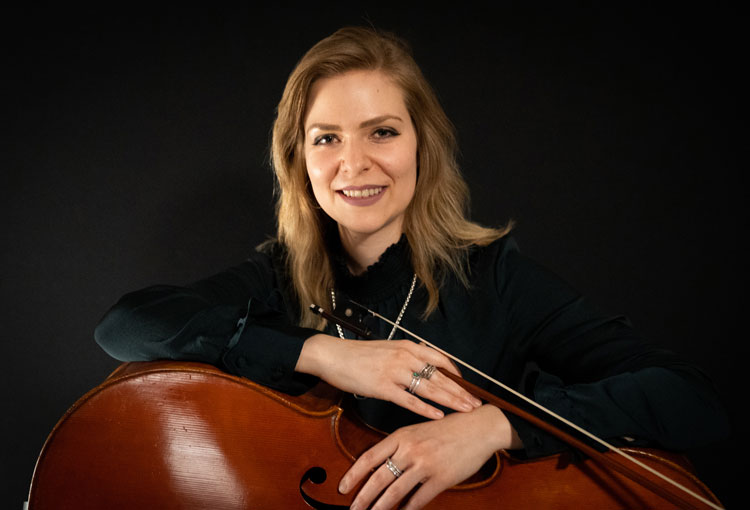
Plus a duet, a trio and a quartet
The concert also includes a trio for flute, oboe and clarinet by Malcolm Arnold, a flute quartet by Carl Ditters von Dittersdorf, and a duet for cello and string bass by Gioachino Rossini.
“Cello and bass duets are kind of rare,” said Christine Kralik, UM instructor of cello and bass, who performed the Rossini duet with doctoral candidate and bassist José Cuellar.
Rossini is best known for his operas, such as “The Barber of Seville,” and Kralik said there is “an operatic vibe to this music. Each part has beautiful melodies, and I can easily imagine a voice singing them in one of his operas.”
The duet featured in the concert also is a great example of the composer’s writing style, Kralik said.
“What I most enjoy about this particular piece is the depth of sound that you get from the mix of timbres from the cello and the bass,” she said. “It is so rich and supported between the two instruments.
“I also love the openness and brightness that Rossini’s writing naturally exhibits in this piece. It really is beautiful writing and he does a great job capturing that dolce singing quality in the cello and the bass.”
By Lynn Adams Wilkins

